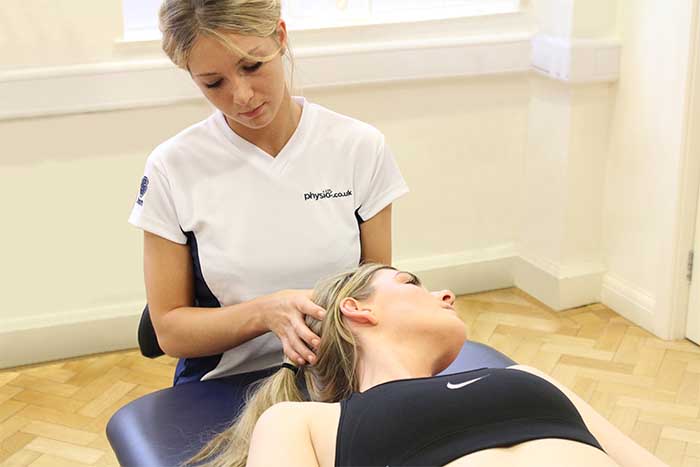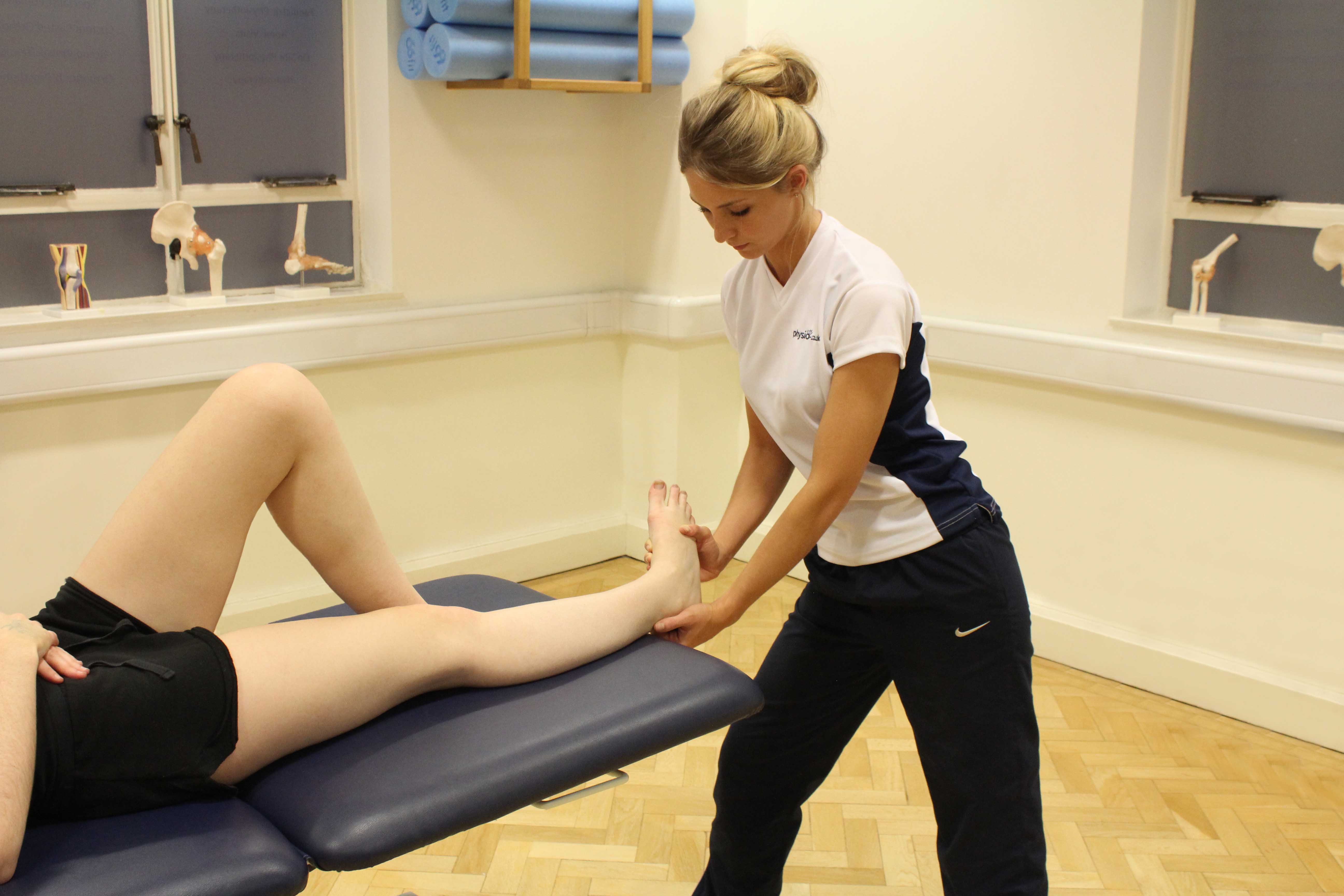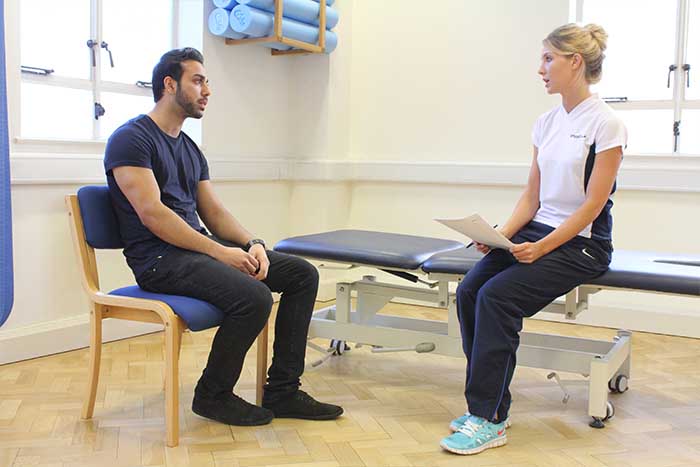Massage for learning difficulties
Massage can be used as part of a management programme for an individual with one or more learning difficulties to achieve a number of goals, such as increased relaxation and reduced stress. Massage therapy can be extremely beneficial when applied during a number of circumstances such as prior to or following a stressful event. Through the application of slow, gentle and long massage strokes the individual will feel immediate and lasting benefits and should therefore be considered as an important part of a management programme for learning difficulties.
What is massage for learning difficulties?
A learning difficulty occurs when an individual's brain development is affected, this may happen before birth, during birth or in early childhood. This process affects an individual's ability to learn new things due to difficulty communicating and processing information. As with many over conditions the severity of a learning disability can range from mild to severe. Some people with a mild learning difficulty are totally independent but just take longer to learn a new skill. Others with severe learning difficulties may struggle with communication and be dependent on others.

When can massage help for learning difficulties?
Massage therapy can be very beneficial when applied during the following circumstances;
 Above: Massage of the foot and ankle by a specilaist massage therapist
Above: Massage of the foot and ankle by a specilaist massage therapistMassage can help an individual with learning difficulties when applied prior to or following a stressful event. A stressful event refers to any situation where stress levels are heightened e.g. job interview, exams, first day at new job or new school. During events of high stress the level of cortisol within the body rises, which is a hormone related to increase stress, anxiety and negative thoughts. The application of massage has the ability to reduce the release of cortisol and increase the release of the body's natural endorphins serotonin and dopamine. A combination of decreasing cortisol and increasing serotonin and dopamine helps to reduce heart, respiration and perspiration rate while also promoting relaxation by reducing levels of stress and anxiety.
Massage can be beneficial when applied to tight muscles. Tightness within muscles is common during times of stress which can regularly occur when experiencing a learning difficulty. If left untreated muscular tightness can cause pain and limited range of movement. Massage can relieve tight muscles through increasing blood circulation and reducing scar tissue. Massage can increase blood circulation through stimulating vasodilation, this can increase the temperature of tissues and therefore allow the tissue to relax and become more pliable and flexible. Massage can also reduce muscular tightness through reducing the presence of scar tissue. Scar tissue is made of adhesive fibre connections which can produce pain and limit range of movement. Massage can reduce scar tissue though applying deep compression which can break up the scar tissue formation.
What are the physiological effects of a massage for learning difficulties?
Massage treatment can produce a number of physiological effects which can benefit the individual managing a learning difficulty. The physiological effects of massage include;
Massage treatment can increase the release of natural endorphins. Massage can stimulate the release of endorphins when received in a quiet and relaxing environment where the individual can enjoy massage treatment. The application of gentle and slow massage stokes promoted a deep state of relaxation similar to that of sleep. During periods of relaxation the body releases endorphins such as serotonin and dopamine. An increase in the release of serotonin can allow the individual to feel happy and content with a sense of health and well-being. An increase in the release of dopamine can promote the individual to feel motivated and enthusiastic. An increase in the release of endorphins can also lead to a reduction in pain, decreased stress and improved relaxation.
Massage can decrease the release of cortisol. Cortisol is a hormone released when the hypothalamus within the brain detects a threat as part of the fight or flight response. Low levels of cortisol can assist the individual during times of stress to feel alert and observant. High levels of cortisol can leave the individual to feel stressed, anxious and depressed. Massage can reduce the release of cortisol by creating a relaxing environment so the brain concludes the release of cortisol is not needed. A reduction in the release of cortisol can increase relaxation and decrease stress.

What are the benefits of a massage for learning difficulties?
Massage can produce a number of benefit for an individual with learning difficulties such as;
Massage therapy can reduce stress. Psychological stress is common within an individual suffering from a learning disability due to a combination of frustration, confusion and miscommunication. During periods of heightened stress the hypothalamus within the brain will stimulate the adrenal gland to secrete excess levels of cortisol, a hormone related to stress and anxiety. Massage has the ability to reduce the production of cortisol by promoting relaxation through the application of gentle and slow massage strokes.
Massage can improve relaxation. This is achieved through the application of long, slow and gentle massage strokes. Massage can improve relaxation by increasing tissue temperature and the release of endorphins serotonin and dopamine. Massage can promote relaxation by increasing the temperature of tissues, this is achieved through increasing blood circulation. An increase in tissue temperature can promote relaxation as it allows the tissues to relax and become more flexible and pliable. Massage can also promote relaxation through stimulating the release of natural endorphins such as serotonin and dopamine. Endorphins are natural chemicals released during times of relaxation such as that produced during a relaxing massage. High levels of serotonin and dopamine can lead the individual to feel happy, calm, relaxed and refreshed.
Massage therapy can relieve tight muscles. Tight muscles can occur due to the stress associated with learning difficulties. Massage can reduce muscular tension by increasing tissue temperature and tissue elasticity. Massage can increase tissue temperature by stimulating an increase in blood circulation through vasodilation. Vasodilation refers to a process whereby the smooth muscle surrounding blood vessels relax allowing the vessels to widen and an increase in blood to flow through. An increase in tissue temperature can allow the muscle to relax and become more pliable. Massage can also increase the elasticity of tissues through promoting relaxation and reducing muscular tightness. An increase in tissue elasticity an also increase tissue flexibility and range of movement.
Summary
Massage treatment can be extremely beneficial when applied to an individual suffering from a learning disability. Massage can be applied as part of a management programme for learning difficulties during periods of high stress and tight muscles. The application of massage can produce a number of physiological effects such as increased release of endorphins serotonin and dopamine and decreased cortisol. The benefits felt following massage include a reduction in stress, relieved muscular tightness and overall improved relaxation.
How can I arrange a massage to help learning difficulties?
To arrange a massage to help learning difficulties at Physio.co.uk, email us at office@physio.co.uk or call us on 0161 883 0077.
You can also book an appointment online and save £10.

 0330 088 7800
0330 088 7800


































